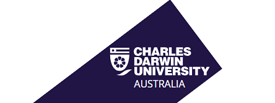About Master Of Digital Learning Futures (sdlf01) in Charles Darwin University
Advancements and innovations with digital technology are not stopping now! Get ready for the next wave of global transformation and participate in an innovative industry relevant program that investigates the dynamics of the digital era. What new "smarts" are on the horizon and what skills are needed to engage effectively within the digital paradigm? How might we learn next? How might we teach?
The Master of Digital Learning Futures is designed as an inter-disciplinary program that probes the edge of innovation with digital media and ways that learning can be optimised. It is suited to those working or aiming to work in educational settings, creative industries, software development, learning design, e-learning and related fields.
Based on a solid foundation of core units the course provides opportunities for research and internship as well as electives in new media production skills, web development, and systems management.
Course Structure
The Master of Digital Learning Futures offers 10 core units, which equip students with research, theory and practice related knowledge and skills.
The program also offers a choice of specialist elective sequences including:
- New Media;
- New Media Web Development;
- Information Technology - Introductory Web Programming; and
- Information Technology - Systems Management;
The program concludes with a research project grounded in a real-world situation, which can be either theory focused or digital resource production based, and linked to an industry-based internship.
A candidate must successfully complete units totalling 160 credit points (cp). All units are valued at 10 credit points unless indicated.
Successful completion of a recognized Bachelor's degree or higher.
IELTS Academic Module - A minimum overall score of 6.5 with no band less than 6.0; Australian Technology and Management College (ATMC) - Successful completion of English for Academic Purposes (EAP). Students will be required to sit an exit test on completion and achieve a score equivalent to IELTS overall 6.5; Cambridge Advanced English (CAE) - A minimum overall score of 176 with no skill below 169; Common European Framework Certificate of English Proficiency - A minimum overall grade of C1, valid for three years from the date of the test to the date of commencement at CDU; Navitas Academic English - A minimum overall pass and 65% in Academic English 3 with a 65% pass in the research essay;
Pearson Test of English (PTE) Academic module - A minimum overall score of 58 with no score lower than 50;
TOEFL Internet based Test (iBT) - A minimum overall score of 79 with a minimum writing score of 21.
Charles Darwin University Highlights
| Type |
Public |
| Campus setting |
Urban |
| Establishment year |
2003 |
| Location |
Darwin, Northern Territory |
| Number of campuses |
5 |
| Annual Endowment |
301 Million AUD |
| Academic staff |
580 |
| Total students |
20124 |
| International students |
17.5% |
| Graduate Employment |
83.39% |
| Mode of program |
On campus/ Online/ Full time/ Part time |
Charles Darwin University Average Tuition Fees And Other Expenses
The tuition fees and other expenses at Charles Darwin University (CDU) can vary depending on the program and level of study. Here are some general estimates of the average tuition fees and other expenses for international students:
-
Tuition fees: The annual tuition fees for international students can range from AUD 24,000 to AUD 39,000 depending on the program and level of study. Some programs, such as medicine, may have higher tuition fees.
-
Overseas Student Health Cover (OSHC): International students are required to have health insurance while studying in Australia. The cost of OSHC can range from AUD 500 to AUD 2,000 per year depending on the level of cover.
-
Accommodation: The cost of accommodation can vary depending on the type and location of the accommodation. On-campus accommodation can range from AUD 230 to AUD 350 per week, while off-campus accommodation can range from AUD 150 to AUD 500 per week.
-
Living expenses: The cost of living in Darwin can vary depending on the lifestyle and spending habits of the student. A rough estimate of living expenses, including food, transportation, and other expenses, is around AUD 18,000 to AUD 20,000 per year.
It is important to note that these are only estimates and the actual expenses may vary depending on the individual circumstances of the student. Make sure to check CDU's website for the specific tuition fees and other expenses for your chosen program.
For reference, the cost breakdown is shown below:
| Program |
Tuition Fee per year |
| Bachelor’s degree |
25,328 – 33,480 AUD |
| Master’s degree |
28,104 - 34,680 AUD |
| Undergraduate associate degree |
29,616 – 33,480 AUD |
| Undergraduate diploma |
26,968 – 29,616 AUD |
| Graduate associate degree |
25,328 – 28,104 AUD |
| Graduate diploma |
32760 AUD |
- For college students in Darwin and Sydney, the cost of living may be different. Below is an estimate for both places as a guide:
| Expense |
Cost in Darwin (per week) |
Cost in Sydney (per week) |
| Food and groceries |
80-280 AUD |
80-280 AUD |
| Gas and electricity |
35-140 AUD |
35-140 AUD |
| Phone and Internet |
20-55 AUD |
20-55 AUD |
| Transportation |
7 AUD |
30-55 AUD |
| Car (if owned by students) |
150-260 AUD |
150-260 AUD |
| Entertainment expenses |
80-150 AUD |
80-150 AUD |
| Accommodation expenses |
175-227.50 AUD |
283-750 AUD |
